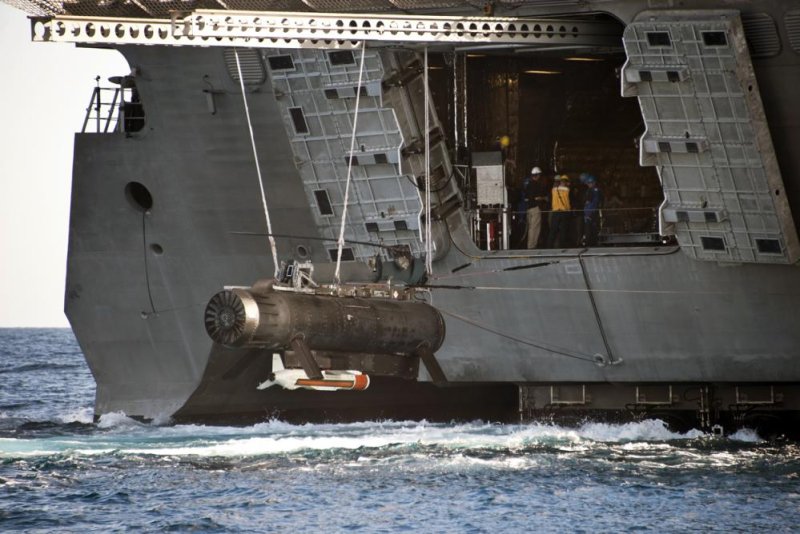WASHINGTON, Nov. 4 (UPI) -- The Navy recently conducted a series of tests to improve the mine-hunting ability of the AN/AQS-20A Variable Depth Sonar system used on littoral combat ships, the sea service announced Thursday.
The tests took place at Carderock's David Taylor Model Basin in Bethesda, Md., and sought to improve the capability of the system that provides detection and classification of mines via imaging sonar, signal processing and computer algorithms, the Navy said in a statement.















